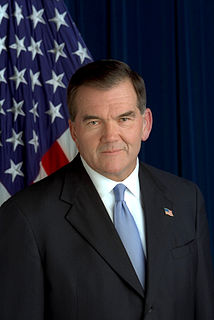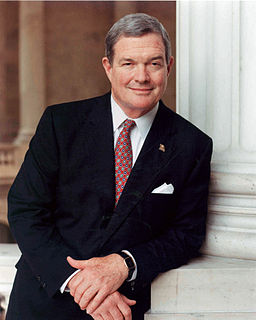A Quote by Tom Cotton
Our national-security strategy must drive our military budget, rather than the budget setting our strategy.
Related Quotes
If our nation goes over a financial Niagara, we won't have much strength and, eventually, we won't have peace. We are currently borrowing the entire defense budget from foreign investors. Within a few years, we will be spending more on interest payments than on national security. That is not, as our military friends say, a 'robust strategy.'
The programs supported by the International Affairs Budget are as essential to our national security as defense programs. Development and diplomacy protect our nation by addressing the root causes of terrorism and conflict. But it's not just about security. By building new markets overseas for American products, the International Affairs Budget creates jobs and boosts the economy here at home.
Senator McGovern is very sincere when he says that he will try to cut the military budget by 30%. And this is to drive a knife in the heart of Israel... Jews don't like big military budgets. But it is now an interest of the Jews to have a large and powerful military establishment in the United States... American Jews who care about the survival of the state of Israel have to say, no, we don't want to cut the military budget, it is important to keep that military budget big, so that we can defend Israel.































